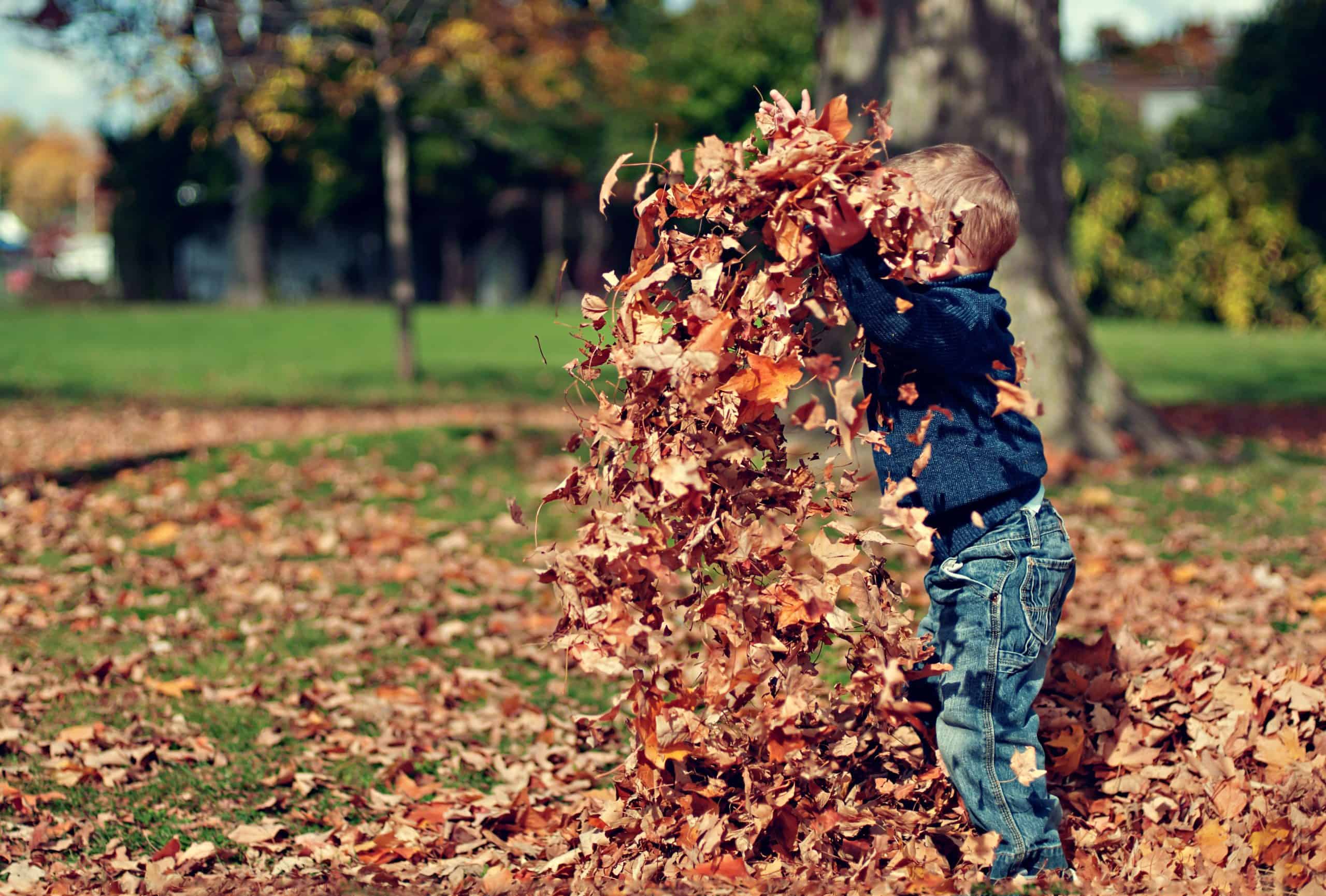
14 Oct Fall Clean-up and Leaf Debris Benefits
They don’t call it “fall” for nothing. Our leaves are changing colors, falling from their trees, and night air grows crisper than each night before. Leaves are fall’s most abundant free crop that aids in evolving your yard’s micro-ecosystem. Everything you do in your yard affects how the ecosystem evolves. This season, think differently about leaf cleanup and how it can benefit different parts of your lawn long term. Grab your rake to start your fall cleanup checklist, and let’s break down the benefits of leaves and how we can use them this year.
Fall is a significant time of year for your yard. If you are wondering what you should focus on before the first snow flies, we are here to help. Removing leaves and additional debris from your yard is essential for the health of your lawn. Excess leaves in your yard block sunlight from reaching the grass, which reduces water evaporation, causing the growth of fungi, mold, and other diseases that can harm your grass and potentially spread across your yard. While we still stress cleaning out your lawn and landscaping from the abundant amounts of leaf and debris clutter, some mulched leaves can provide vital nutrients that benefit different parts of the ecosystem in your yard. Trees source minerals from deep in the subsoil and bring them to the surface when they produce their leaves in the spring. Those leaves are a rich source of calcium, carbon, magnesium, phosphorus, potassium, and more.
Some great uses for fallen leaves include making leaf humus (No, you cannot eat it!), creating a compost pile, making mulch, or mowing them directly into the lawn. So how can these uses benefit your yard, you ask? Leaf hummus can lighten clay soils that become heavy and packed. Decomposing leaves help feed earthworms and can increase the moisture retention of dry, sandy soil. No matter how you use the fallen leaves, mulching them with a lawnmower, chipper, or leaf shredder is best to speed up decomposition. Mix shredded leaves directly into your garden, and by next spring, your soil will be full of earthworms and other beneficial organisms.
Leaf mulch makes a great protective mulch in your vegetable garden, as well as a protective space for our pollinators that hibernate over the winter in dead plant material for protection from the cold. Bees only burrow an inch or two into the ground to hibernate for the winter, relying on natural leaf litter to provide extra insulation. Leaf mulch contains nutrients that are vital for ornamental shrubs, berry bushes, and other vegetable crops. It helps suppress existing weeds, prevents the spread of new weeds, and helps retain soil moisture. To read more about our pollinators and how we can protect them, click HERE.
Fallen leaves are not just beneficial for the garden; they are helpful for your lawn as well. All of the fall maintenance you do around your yard is to help your lawn finish strong. It is essential to continue mowing and watering your lawn as needed until temperatures consistently drop below 50 degrees and the lawn has stopped growing. Make that final mow count by running your mower over a light layer of fallen leaves to shred them and let them settle into the lawn to decompose into natural fertilizer over the winter.
Don’t lose sleep over not picking all of your leaves up as fall fades into winter, and don’t rush to clean them up in the spring. Don’t worry; flowers can still emerge through the mulched leaf cover!
Raking leaves, cleaning up fall debris, and properly pruning plants and trees is a lot of work. If it’s not a job you love doing; or have a hard time squeezing in the time now that our beloved Huskers are playing much better than years before, we are happy to help! So sit back, relax, enjoy the fall colors, and let Sun Valley Landscaping professionally clean up your yard this fall! For a list of all services we provide, including our fall lawn and landscape cleanup services, click HERE.


